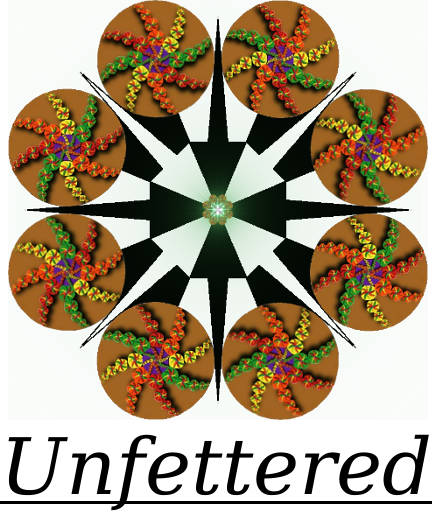“An injustice to one is a menace to all,” – Montesquieu
This powerful quote captures a certain essence of interdependence, itself sometimes slightly elusive to define. Interdependence, in this sense, is in part an immediate and intimate sense of a common and shared humanity, something directly experienced on a felt level, beyond concept, and almost something spiritual or transcendent. It is also a sense of something rather grounded, an interwoven reality of causality which binds us all together like shared stakeholders in a global economy or corporation. As humanity trudges along its evolutionary journey, we learn how to contend with this notion of interdependence, all the while confined by the suffocating notions of immediate satisfaction and self preservation.
Oppression: How Did We Get Here?
One of the guiding principles of the evolutionary journey which is critical to understand and noteworthy to the topic of injustice is sexual selection. Humanity survives due to the proliferation of our genetic code, and as such, any features that reflect a healthy genetic code, such as the apprehension of physical beauty, which has everything to do with feature symmetry and physical fitness, physical well being, mental fitness and well-being, often reflected as the ability to manage resources, or a sense of orderliness and self care, and perhaps a non-reactive, emotional balance in demeanor, in short, the features that make up the character list of the standard sought after single, will grow more and more dominant within a population, and any features that deviate from these general norms will be typically ostracized. It is easy to see how, from a perspective of evolutionary psychology which shows us that evolution doesn’t care for either truth or fairness, only survivability, that we may have innate urges which lean in the direction of aversion towards any deviation from this image of the perfect mate built right into our inherited psyches, like seeds. These seed aversions would be spread about the population in a general pattern of inheritance, but also randomly, as would the so-called favored characteristics. These inherited blind attachments and aversion would run deep in individuals, and would almost feel as if they were merely meant to be, the obvious order of the universe as decreed by some supernatural force. However, they exist only due to random mutations over a very long stretch of time, guided by natural selection in mate preferences.
Another brief mention ought to go, at this point, to the basic in-group / out-group preference that occurs in human societies. We like to bind together, it helped us survive very early on in our evolutionary history, and for quite some time. Those of our early ancestors that instinctively, blindly bound together due to some perceived likeness, and rejected other groups due to perceived difference, those groups would out-survive the other early humans, they would retain resource control, etc.
It is therefore easy to understand how we might, though a possibly blind process of self-cherishing on the part of the dominant, normative group, create standard social constructs built off of our inherited senses of preferred characteristics and in-group / out-group bunching. It almost seems inevitable that this would occur. After all, we do tend to limit our compassion for those that we can relate to, to those that we can identify with, and we use that appreciation of likeness in harmony with our own self cherishing to create cultures that celebrate ourselves, and one another, on the basis of sameness. It is easy to see how many nuanced issues might arise from such a scenario, played out over the long course of history.
Useless Idiocy
While it is clear that these tendencies would seem to come from evolutionary processes that are outside of our control and are deeply rooted into fundamental traits of the human psyche, it is quite clear that the objectification and demoralization of perceived others is something that is carried out on a conscious, deliberate level, and is therefore something within our power to choose to participate in or not, depending on the level of self awareness of the individual in question.
Intention and awareness, therefore, become the most important factors at play. Intention takes on the role of the delineating factor between conscious and unconscious oppression, and as such it is the delineating factor between who is, in true ignorance, blindly parroting racist or sexist tropes or continuing damaging stereotypes, and someone who is deliberately and knowingly doing so. While ignorance may not totally excuse someone of belligerency, it must certainly play a part in how we determine the quality of someone’s moral character, and must be considered when we decide how to address these actions, choosing to say either, “That statement had rather racist undertones,” as opposed to, “You’re a racist scum-bag.”
What can we, as individuals, do to work with not only knowing how to address expressions that are oppressive from others, but also these blind urges and tendencies within ourselves, and the nature of ignorance in general?
Modern oppression, being rooted in unconscious acts of aversion and avoidance, may be rooted in an all pervasive conditioning, but it can be addressed, however, with practiced emotional intelligence and self awareness. These traits can be cultivated via mindfulness, which, in its original, Buddhist context, is intended to address being dominated by non-intentional motivations based in habitual aversion and grasping. The Buddhist sense is that these blind, habitual aversions and attachments lead to less savory, less stable states of happiness and well being, and increase suffering both on the personal and social level. Addressing these blind race and sex based aversions may be tricky, since we evolved with a bend towards in-group/out-group biases in the name of tribe-survival, etc., but they are still able to be addressed by going at root habit patterns of aversion and grasping. This tends to export nicely to other areas of aversion, avoidance, and grasping (at power), etc.
Ok, so now what? Things get personal…
It appears as if the first thing that we can, and need, to do in order to address oppression at the personal level, in order to address our participation in it, is to become comfortable with uncomfortable feelings and situations. We need to become comfortable with our own feelings of blind aversion on a felt, immediate level, as they arise. We need to be able to stay with those feelings long enough to realize how impermanent and unstable they are, and to directly experience how much discomfort that they engender in their own right. In order to do this we must first learn to accept that they are there at all, and we can allow this to happen if we stop blaming ourselves for their mere existence, instead we can chose to see them as the result of evolutionary, and cultural conditioning. Seen as inherently unstable and impersonal in this way, we may identify with them less and less over time. Further, once acknowledged, these feelings loose their quality of being unconscious volitions, and they gradually weaken as a result. This is the basic Buddhist path, and is also the wisdom behind distress tolerance. It is the original mindfulness, as opposed to these modern snappy coloring books aimed at adults, as nice as they might be, they are not mindfulness in its fullest, and most fulfilling sense.
Another thing that can be done to address this problem on a personal level is to adhere to a code of conduct that does not leave room for blind oppression. Understanding that we are all living out multiple identities, or that our identity has multiple dimensions, we can guard ourselves against blindly bearing down on another fellow human in a similar position of multiplicity, possibly rubbing against a raw, reactive trigger-spot in their psyche, by adhering to a code of conduct based on non-violent speech, action, and livelihood. The nature of such a code of conduct would be the focus of an entire series of blog entries, and is beyond the scope of this essay, but I think that the nature of such a code of conduct speaks for itself by the terminology used to define its basic essence.
We can also adhere to a philosophy of interdependency, as is evident in the world that we observe. When we acknowledge that all phenomena, and individuals, arise in an interdependent way, relying on a multiplicity of innumerable causes and conditions, and that every moment of our lives can be seen as a series of individual phenomena that are all permeated by this fundamental truth, we begin to understand how deeply interconnected with and interdependent upon one another we all really are. No one of us lives in a vacuum, or on an island, and we all share far more than we could ever have in difference. This deep interdependence weakens the perception of an absolute sense of self, and so weakens the position of a race-based identity, for example, that can be hard-coded onto an individual in the way that racist propaganda would suggest. It leaves room for nuance and flexibility of self, replacing the rigid definitions that plague the identity politics of oppression and hatred, making room for the vision of a common human experience which respects individual expressions of self-hood without binding any one individual to any one expression they may be experiencing at any one time. Also, it binds the oppressed into the most noble position of seeing that the oppressor is not to be hated, but loved, thus ultimately destroying the oppression of hatred itself and the oppression of all pervasive conditioning.
Mindful Non-Oppression
What we end up with is the wisdom of interdependence, the ethic of non-violence, and a meditative self reflection and effort towards distress tolerance in a very specific context, which all work together to address the the suffering of identity based oppression. These modular instructions prescribed by the early Buddhist schools can be used to deal with the suffering of oppression and racism quite nicely, we might call this method, “Mindful Non-oppression.”
We can lean on this same principle of interdependence when considering a racialized space by applying the notion that, since there are no hard-coded qualities of self, then these spaces must have come about due to other causes and conditions. Therefore we can move people away from the easy to grasp narrative that the impoverished spaces that we sometimes find minority groups in must have be the result of a morally or otherwise inferior group or type of people. This allows for a potentially nuanced discussion, so long as we can root down into the principle that there are no hard-coded qualities of self in any one individual, and we only get there by addressing innate, habitual, blind aversion, and we address that in a meditative state.
For instance, we can bring mindfulness and distress tolerance workshops to police forces to begin the process on an immediate, felt-but-not-discussed level, thus breaking through any cultural barriers that may inhibit dialogue. Once the problem of root, habitual, blind aversion is addressed, and the method to doing so habitualized and reinforced, then the dialogue will happen perhaps a bit more smoothly, and even if not, the notion is that the behavior might automatically change, perhaps softening a bit.
Changing the system is a daunting task, and takes time, effort, and considerable resource. However, we can work at changing our individual selves immediately, and quite radically, through a radical form of compassion and self care, through the adoption of a radical view of interdependence, and through a system of ethics that radically adopts to non-violence. We can work together to teach this, and in time create a tide of compassionate, wise, and unrelenting social change that is quite clearly needed by our wounded and suffering world today.


nice